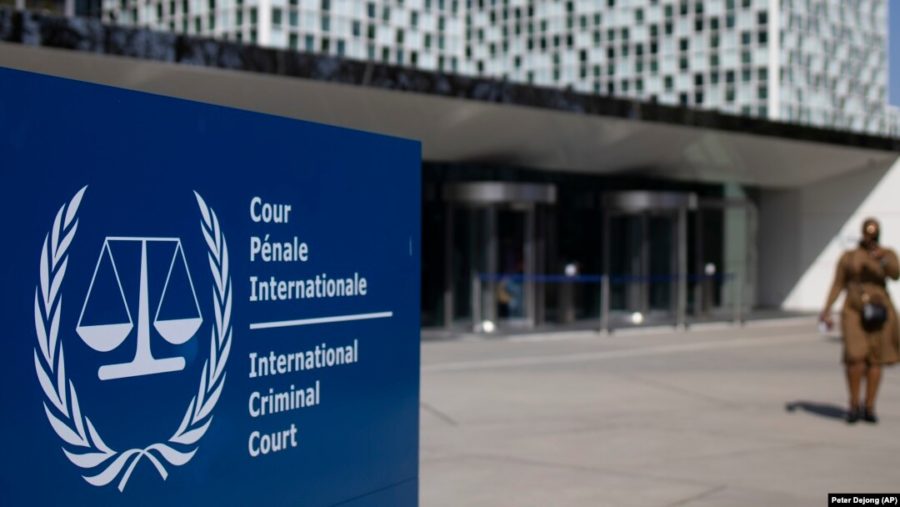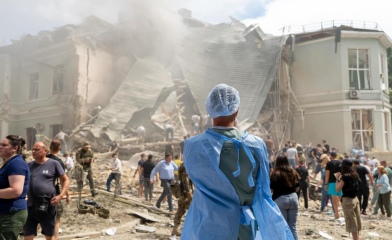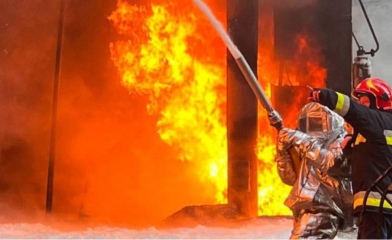On 9 February 2024, the Cabinet of Ministers of Ukraine approved an action plan to implement the recommendations of the European Commission presented in the Progress Report of Ukraine under the EU's 2023 Enlargement Package.
In its report, the European Commission, in recommendation 140, emphasises the need to work towards the ratification of the Rome Statute of the International Criminal Court (ICC) and related documents. However, the Cabinet of Ministers of Ukraine, in its Resolution No. 133-r, sets a deadline for the implementation of this recommendation "within one year after the termination or cancellation of martial law".
We, representatives of non-governmental and human rights organisations, believe that this delay is unjustified, as Ukrainian legislation does not contain any obstacles to ratification. The Istanbul Convention was ratified on 18 July 2022, when martial law was already in place. The unjustified postponement of Ukraine's ratification of the Rome Statute poses a serious threat to ensuring accountability for the most serious international crimes committed on the territory of Ukraine since 2014 and significantly complicates the path to justice for war victims. Ukraine's warnings about the risks of prosecuting Ukraine's military leadership through the ICC mechanism should not be a reason for delay, as ratification does not affect the process of determining the perpetrators of the most serious international crimes.
The ICC's jurisdiction has been operating on the territory of Ukraine since 2015 and poses no threat to the state. During the first five years, the ICC conducted a preliminary examination of the situation regarding the events in Crimea and eastern Ukraine. Since March 2022, following a request from 43 states parties to the Rome Statute, the ICC has opened proceedings on the consequences of Russia's full-scale invasion of Ukraine. Many States Parties, including the EU, also made voluntary contributions to ensure that the Office of the Prosecutor has the capacity to conduct a high-quality and impartial investigation into the situation in Ukraine. Soon after, two arrest warrants were issued, including for Russian President Vladimir Putin. And on 5 March 2024, the ICC released information about two more arrest warrants for two Russian commanders.
Ukraine is actively cooperating with the ICC Prosecutor's Office, but such cooperation without ratification may cease at any time if the political will of the leaders changes or such cooperation becomes unprofitable for Ukraine for any other reason. There are a number of such examples in the history of the ICC, including in Burundi, the Philippines, Darfur, Libya, etc. This will put the victims of war in a vulnerable position.
In addition, in accordance with the principle of complementarity, those investigations that the ICC will not undertake (and this is the majority) should be conducted by the state itself, but in accordance with the standards of international humanitarian and criminal law. Ukraine critically needs to adapt and harmonise its criminal and criminal procedure legislation with the standards of the Rome Statute. Ratification of the Rome Statute will be a catalyst for the necessary reforms of the criminal justice system in Ukraine. Otherwise, ensuring quality and impartial justice processes and achieving justice for victims will remain a political slogan and another manipulation rather than a real intention to ensure the effectiveness of mechanisms for bringing to justice for the most serious crimes.
Ukraine has long insisted on the establishment of a special tribunal for the crime of aggression, as there is a gap in international law regarding the prosecution of this crime. However, the Rome Statute provides for the responsibility of the highest political leadership for the crime of aggression, albeit in a very limited form. At the Assembly of States Parties to the ICC, Germany, along with a group of other countries, stated that it was time to adopt appropriate amendments to the Rome Statute, thus making it an effective tool for prosecuting the crime of aggression. Ukraine should play an active role in ensuring the adoption of such an amendment in its status as a state party to the Rome Statute if the government is truly interested in bringing the highest political and military leadership of the Russian Federation to justice for the crime of aggression. But in order to join this process, Ukraine must ratify the Rome Statute without delay.
Ukraine's ratification of the Rome Statute will finally demonstrate to the world the true intention of our country to respect the rule of law for all victims of Russian armed aggression. By doing so, Ukraine will ensure its role as an active participant in building an effective justice architecture. From being a passive observer, it will turn into an active creator of the justice processes that its people deserve.
In response to the disclosure of information on two ICC arrest warrants dated 5 March 2024, Volodymyr Zelenskyy said: "When international justice starts working, it cannot be stopped.
We insist that these inspiring words should be backed up by actions, and the ratification of the Rome Statute should become an urgent priority for both the President and the Verkhovna Rada of Ukraine and the European Commission, so that Ukraine can finally join the ICC in 2024 as a state party.
We call on the European Union, in particular the European Commission, the European External Action Service, EU member states, the European Parliament and other EU institutions to note that there are currently no legal obstacles to the ratification of the Rome Statute. As the President of Ukraine has the right of legislative initiative in this matter, he should submit the relevant draft law to the Verkhovna Rada for a vote without further delay. We also call on the European Commission and EU member states to actively support this step.
Association of Women Lawyers of Ukraine "JurFem"
Coalition of NGOs "Ukraine. Five in the Morning"
Regional Centre for Human Rights
Centre for Civil Liberties
ZMINA Human Rights Centre
Democratisation Policy Council
European Centre for Constitutional and Human Rights
Generation for Rights Over the World (GROW)
Human Rights Centre, UC Berkeley School of Law
International Centre for MultiGenerational Legacies of Trauma (ICMGLT)
International Partnership for Human Rights (IPHR)
No Peace Without Justice
REDRESS
The Duty Legacy
Truth Hounds
Women's Initiatives for Gender Justice




